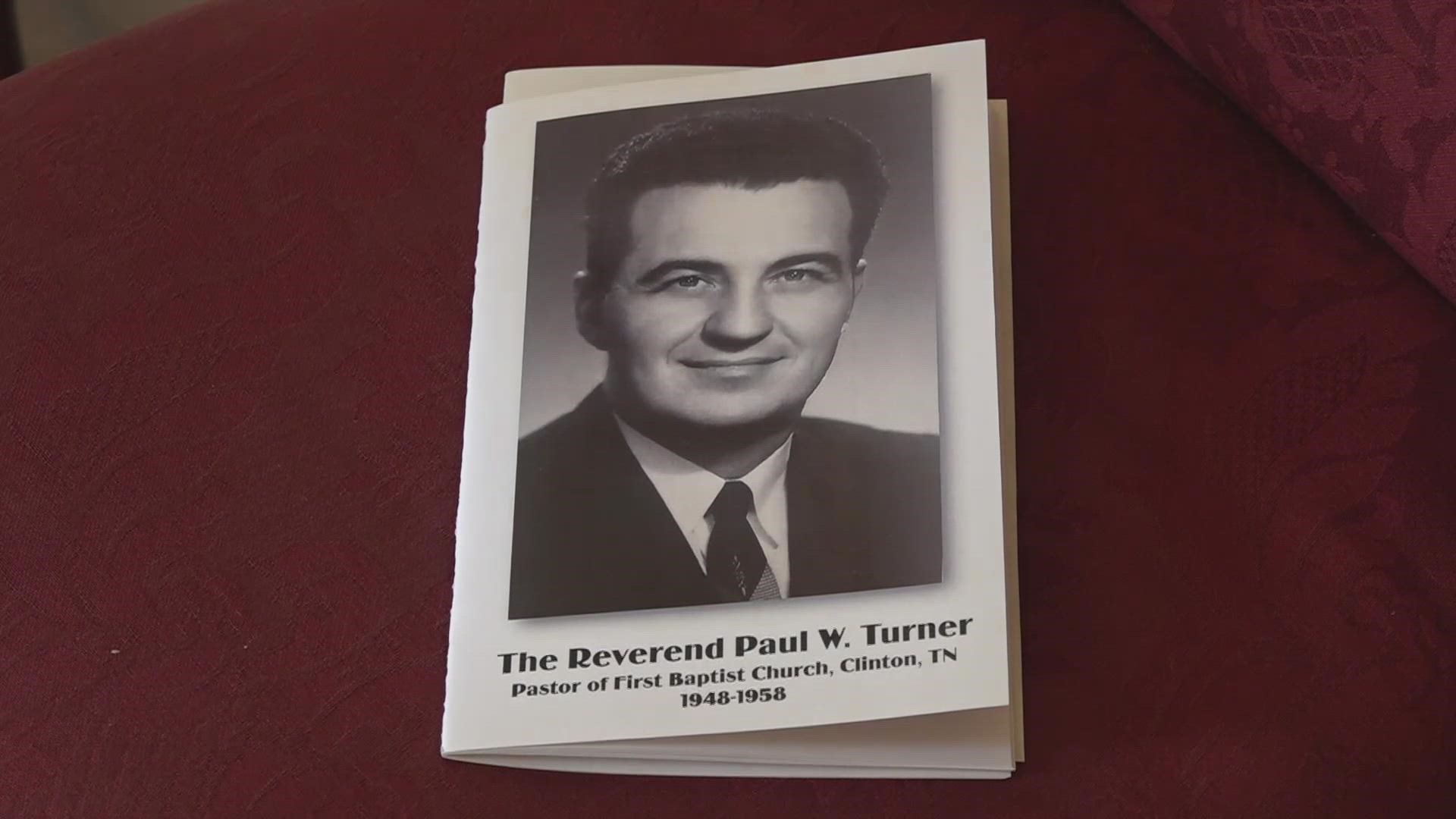CLINTON, Tenn. — Reverend Paul Turner was an influential leader during the Civil Rights movement. His impact on the community was evident at the First Baptist Church in Clinton when people from the community gathered in his honor.
The church unveiled a historical marker that commemorates his life and his role in integration. He preached for unity and touched many lives.
One of those lives is Larry Gann, deacon of First Baptist Church. He was there when the Reverend announced it would be his last night before leaving for Nashville.
"He was the shepherd of this church and this flock," Gann, said. "And I made my professional faith and got baptized the same night."
Over the last couple of years, the church has been trying to create historical markers to keep his memory alive. This was a process that had its challenges.
"Every sentence had to be a standalone fact and then separating church," Jeannie Garrett, chair of Turner Memorial Committee said. "Because this is a state historical marker."
Everything started with a ceremony inside the church with speeches and music. Sounds from Turner's speeches from the past echoed through a white and black television screen reminding everyone how important integration is.
Gann in his speech said that the Reverend was "a believer that took his beliefs into action."
Some members of Turner's family also attended the event. John Lockhart, a former pastor of First Baptist Church in Richmond, Texas, was in attendance. He said many others wanted to attend but they were unable to due to other obligations.
Lockhart had followed in his uncle's footsteps into becoming a pastor. He said he was influenced by Turner who was a "really special guy." Lockhart remembers Turner always playing with them when they were children and giving them attention.
"We enjoyed knowing him and then admiring," Lockhart said. "Some of us were too young when the Clinton experience happened to be able to comprehend it."
The Clinton 12 was when Turner walked 12 Black students to school. He was later beaten up for it and had to carry those scars for the rest of his life.
Now there are two historical markers around the First Baptist Church. One on Charles G. Seivers Boulevard and one on Main Street.
The chair of the Turner committee said they have a different marker inside the church to commemorate the religious impact he had on the community.
Gann said the hope with these markers is to b ea reminder for people to follow what's right regardless of the cost.
"So many times we don't put our faith into action and Paul Turner to his own detriment put his faith into action," Gann said. "There's no doubt in my mind that if if we did more of that if we did what we knew was right regardless of the consequences. We'd all be a lot better off."

